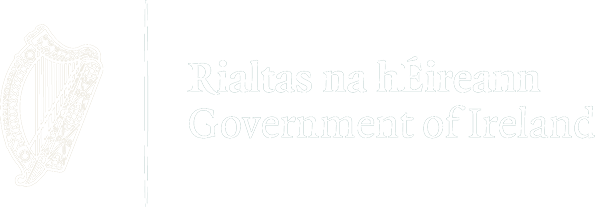The MSLETB Learning Experience
For detailed information about policies and procedures relating to the learning experience in a particular MSLETB centre, please contact that centre directly. A list of all MSLETB centres can be found here. As new and common policies and procedures are developed and approved, they will be published here.
The MSLETB Admissions Process
MSLETB is currently developing a common admission policy for use across all of its FET services to ensure that “admission procedures and criteria are established and implemented consistently and in a transparent manner and in accordance with national policies and procedures for Access, Transfer and Progression (ATP)” (QQI Core Statutory Guidelines, 2016).
A learner’s suitability is generally assessed at interview stage with additional assessments required for entry to certain programmes (such as the Ishihara Colour Vision Test for particular craft apprenticeships). Programme descriptors detail the required knowledge, skills and competencies at different levels of the NFQ that are required for entry into programmes and it is expected that learners would meet this requirement prior to entry on a particular course. MSLETB is engaging with the standard application approach procedure that has resulted from the introduction of the PLSS and online learner application system.
There is currently a common admission policy for entry to MSLETB Adult Education (Part-time) courses, this can be accessed here.
Recognition of Prior Learning
There is a formal agreement in place to recognise prior learning for the purpose of access to apprenticeships and also for exemption purposes. You can access MSLETB’s Policy and Procedure for the Recognition of Prior Learning (RPL) – National Apprenticeship Programme here.
Currently there is no process by which RPL is available for certification purposes. MSLETB recognises the increasing demand for RPL by its learners and is committed to working towards a formal process through sectoral engagement at a national level.
The Learning Environment
MSLETB are currently investing significantly in the refurbishment of buildings in order to ensure that learners within MSLETB will have the opportunity to experience learning in a suitable environment and are provided with the resources and equipment, which are required for their learning. MSLETB is committed to creating a learning environment that allows learners to have a positive and holistic learning experience.
MSLETB is committed to equality for all its learners and aims to provide an environment free from discrimination and harassment. Learners are encouraged to participate in the diverse range of activities on offer across FET centres which aim to promote a positive social and cultural learning environment, including guest speakers, field trips, and health and wellbeing events. Many FET centres across MSLETB participate in various extra-curricular activities such as fundraising, drama, music and sports all aimed at demonstrating the wider benefits of learning.
TEL
MSLETB is currently rolling out its TEL Action Plan in response to the SOLAS Technology Enhanced Learning Strategy for FET 2016-2019. Actions include significant investment in devices in order to help teaching staff to change the manner in which programmes are delivered.
All FET staff will receive training in order to support the TEL Strategy and all TEL infrastructure in FET centres is currently undergoing modernisation to include moving from local servers to cloud-based storage and connection to the best possible broadband service available in that area. An ePortal is currently being developed which will offer short online courses and assessment to FET staff and MSLETB is currently offering a Level 7 Technology Enhanced Learning programme to teaching staff on a pilot basis.
Work Placement
MSLETB is committed to the safeguarding of learners who undertake work placements as part of their programme of learning. MSLETB make every effort to ensure that the work-based learning environment of the learner is appropriate, safe and productive. Learners going on work placement will generally be overseen by a named person within each programme, usually the work experience teacher/instructor or course coordinator, and this named person is responsible for all communications with workplace supervisors in relation to the completion of the supervisor’s report.
MSLETB recognises the opportunity to reflect on its current approach to the quality assurance of the work placement elements of all its programmes and to develop a policy in order ensure commonality across all services and also to provide clear instructions to workplace supervisors in the area of assessment. In an ongoing engagement process with employers, MSLETB aims to correctly support workplace supervisors with the production of clear written guidelines and information sessions.
Following a review by ETBI, changes have been implemented nationally to the means by which work experience modules are assessed. In-service training will be provided, as part of MSLETB’s CPD provision, in order to assist teachers to become more familiar with these changes. The ongoing review of programmes also gives MSLETB the opportunity to review current practices and to streamline processes in order to reach a standard approach in assessment across all services.
Feedback on the Learning Experience
In accordance with the provisions of the Education and Training Board Act (2013), a learner representative is a member of the MSLETB board. MSLETB is a member of AONTAS and have participated in learner forums and events, which improve the learning experience for all of its learners.
FET learners provide feedback at centre level through midterm and end-of-term reviews. The information gathered from this feedback highlights any concerns that the learners may have and is also used to inform the content of programmes and to make any necessary improvements. The process of learner feedback varies from centre to centre and is an area that needs to be reviewed to arrive at a consistent approach across all FET provision.
Learner Grievances
MSLETB’s Code of Practice outlines the mechanisms through which learners may raise concerns through its complaints procedure. A nationally agreed Third Party Complaints Procedure is in place in MSLETB and can be accessed here.



